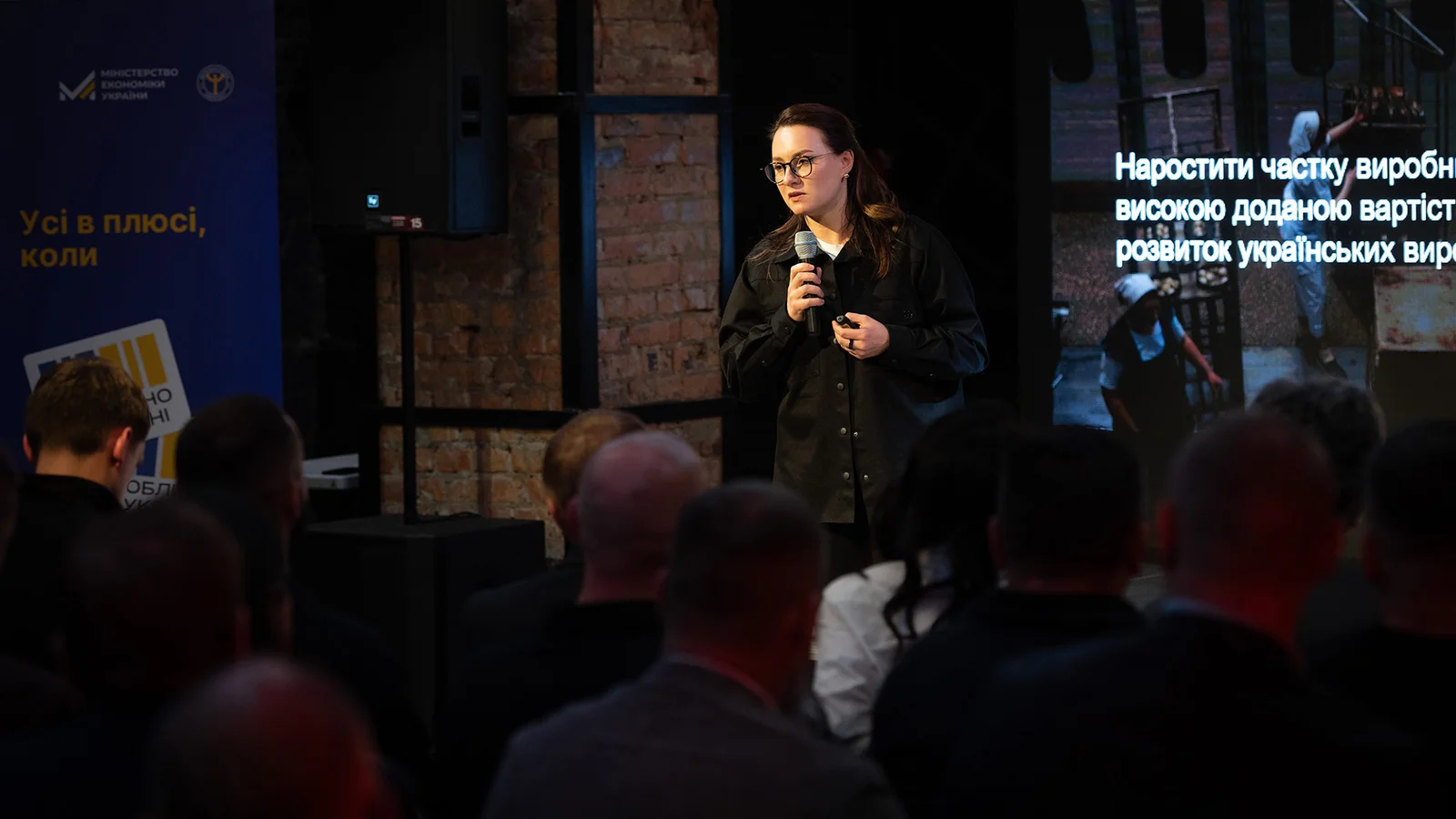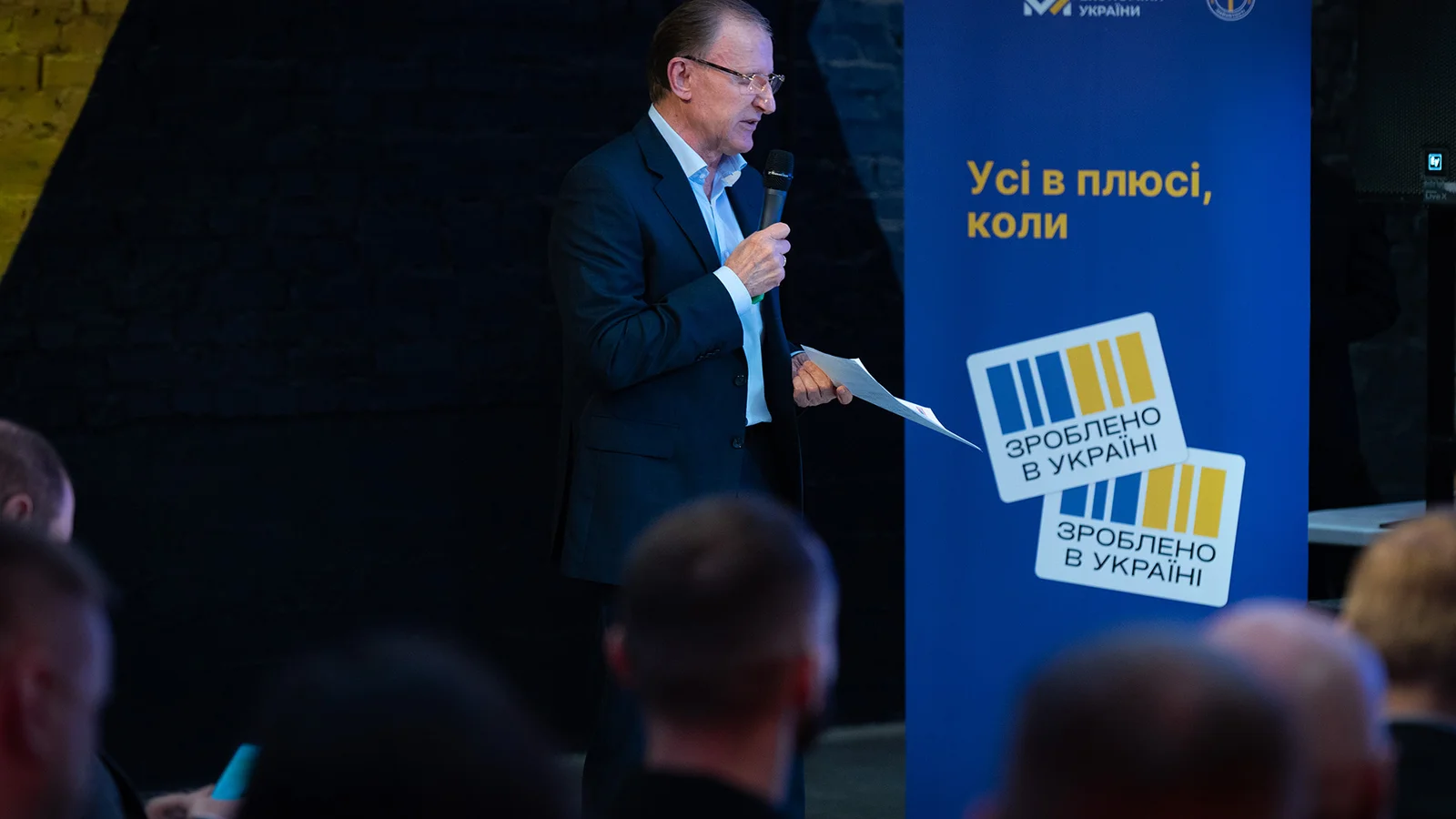First Deputy Prime Minister and Minister of Economy of Ukraine Yulia Svyrydenko paid a working visit to Zaporizhzhia. The minister paid special attention to industrial sector enterprises that continue operating in the frontline city. Yulia Svyrydenko visited metallurgical, machine-building and food processing enterprises. The visit concluded with a meeting with business representatives from the Zaporizhzhia region, where they discussed current issues and expectations regarding state economic policy. Taras Shevchenko, Acting General Director of Zaporizhstal of Metinvest Group, Hero of Ukraine, participated in the event.
Yulia Svyrydenko noted that over 8% of Ukraine's industrial production is concentrated in Zaporizhzhia region, and despite the temporary occupation of 80% of the region and constant hostile attacks on the city, Zaporizhzhia produces almost 20% of the country's metallurgical industry output and around 7% of its machine-building industry output.
Zaporizhstal, Motor Sich, Ivchenko-Progress, Zaporizhzhia Automobile Building Plant, and small and medium-sized businesses in the city continue to operate and support the national economy. Their representatives joined open dialogues with the government's economic team. Business representatives voiced their challenges and proposed their own vision of solutions that would support Ukrainian manufacturers and, consequently, the national economy.
Taras Shevchenko, Acting General Director of Zaporizhstal, raised relevant issues for the export-oriented mining and steelmaking complex and proposed solutions. Particularly, the enterprise's head emphasised the urgency of preserving duty-free trade with the EU for Ukrainian metallurgists. According to Yulia Svyrydenko, the EU Council is expected to approve the non-application of trade defence instruments against Ukrainian metallurgy for another three years.

An equally important issue is the necessity to postpone the implementation of the Carbon Border Adjustment Mechanism (CBAM) for Ukraine, as national manufacturers, unlike their European counterparts, do not have access to modernisation investments and funds.
"The introduction of CBAM against Ukraine in 2026 will make economic recovery and the implementation of modernisation and decarbonisation plans for Ukrainian production impossible. Assessing CBAM's impact on Ukraine's economy, experts expect a GDP decline of 4.8% or USD 8.7 billion in 2026 alone. For the same reason, Ukraine's economy could lose up to USD 2.8 billion in tax revenue and over 73,000 jobs at manufacturing enterprises," cited the Acting General Director of Zaporizhstal, presenting research results from CMD Ukraine.
Particularly painful is the issue of massive Ukrainian scrap metal exports abroad, causing an acute shortage of this essential raw material for steel production. Taras Shevchenko firmly believes that scrap metal can and will work better for the Ukraine's economy by remaining in the country. One tonne of exported scrap metal provides minimal tax payments and up to USD 350 in foreign currency earnings, while one tonne of steel made from scrap metal brings UAH 15,000 in taxes to the treasury and USD 1,200 in foreign currency earnings.
Scrap metal is an essential raw material for producing crude steel and steel products. The scrap shortage forces metallurgists to cast iron into pig iron and sell this low-margin semi-finished product. Within a four-month timeframe, Zaporizhstal alone will offer the market pig iron with low added value instead of 300,000 tonnes of highly processed steel products.

"For Ukraine's economy, the overall negative effect will amount to approximately USD 75 million in lost foreign currency earnings. The budget will not receive additional revenue from significantly higher tax and other payments, which could and should go towards strengthening the country's defence capabilities, social assistance, and supporting the Armed Forces of Ukraine," emphasised Taras Shevchenko.
Acting General Director of the Zaporizhzhia steel plant also emphasised the need for a moratorium on increase in railway transportation tariffs. Since the beginning of the full-scale invasion, the logistics component's share in steel product costs has increased fourfold, as mining and metallurgical complex enterprises have shifter to railway transportation, with service costs rising by up to 60%. As per Taras Shevchenko, railway logistics is essential for metallurgical enterprises: producing one tonne of metal requires delivering three tonnes of raw materials, so exporting one tonne of metal means transporting four tonnes by rail.
"Even a slight increase in railway tariffs leads to a substantial increase in our product's production costs, making them uncompetitive in export markets. In this case, exports lose their economic meaning," commented the head of Zaporizhstal.
Yulia Svyrydenko assured meeting participants of the importance of dialogue and attention to each business request, for which the government's economic team is seeking solutions. In particular, this includes addressing the scrap metal shortage, implementing new financial instruments to support enterprises recovering from attacks, improving the 15% compensation programme, and other measures. The head of the Ministry of Economy of Ukraine expressed her gratitude to Zaporizhzhia businesses for their resilience, investments, and developing despite all the war-related challenges.